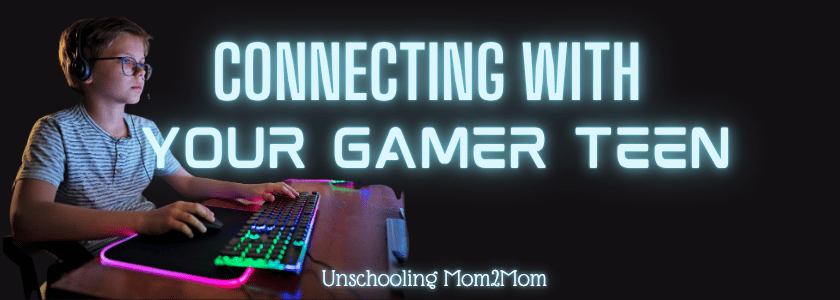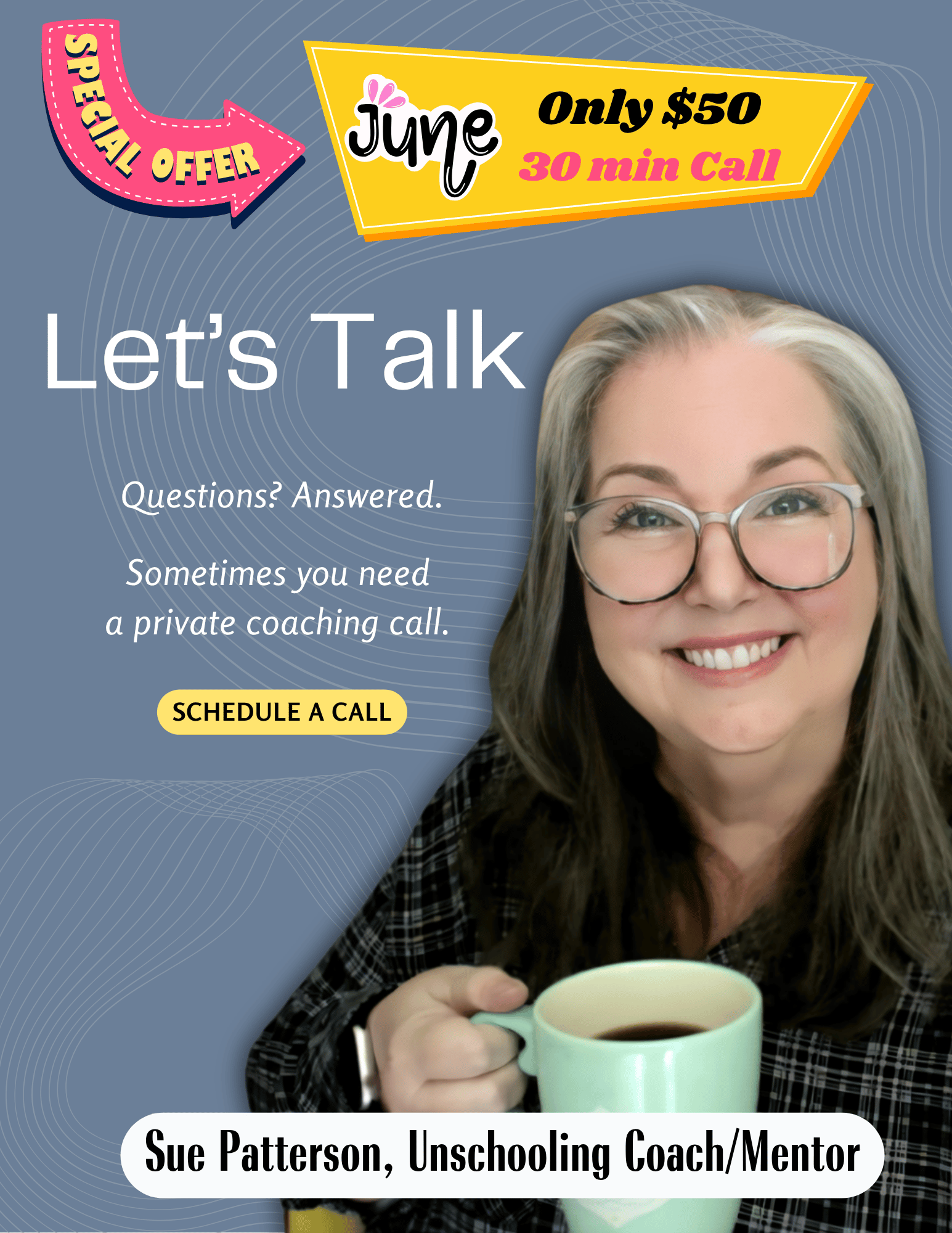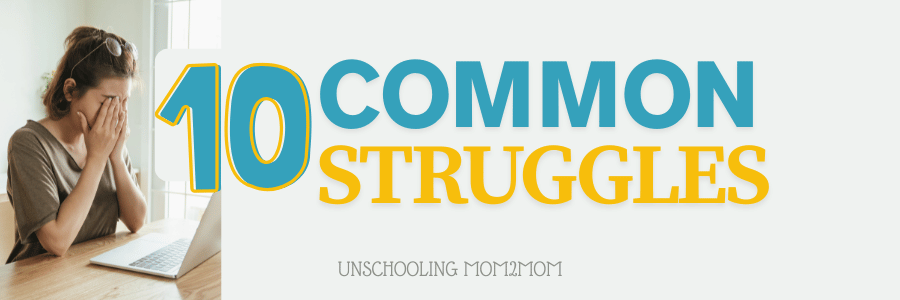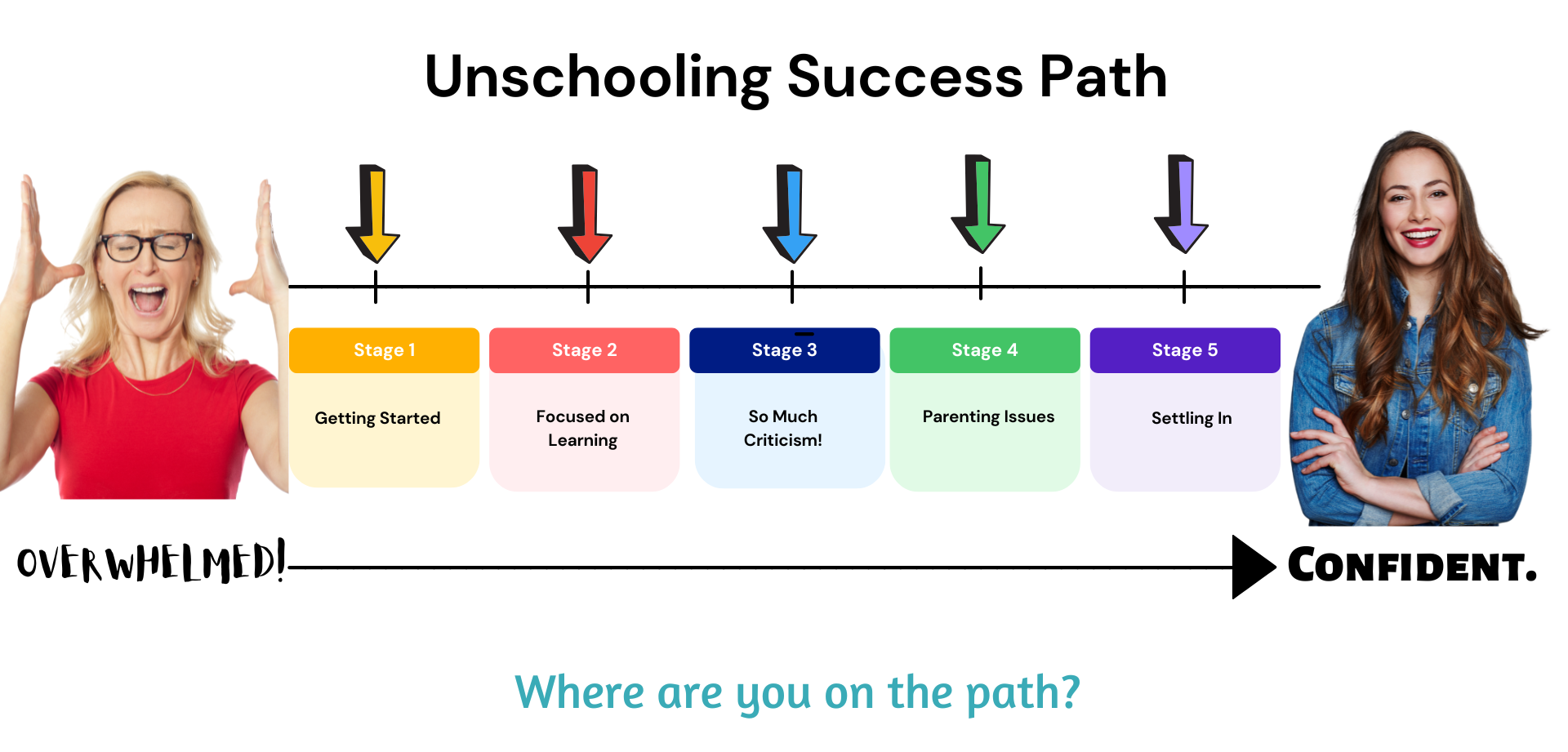6 Steps to Parenting Teens and Young Adults
The internet is full of tips for parenting younger children. Either they expect that you’ve figured it all out by the time they’re teens, or you’ve just put up the white flag of surrender. Unschooling families tend to prioritize the relationships between parents and children, so hopefully this transition to adulthood can go more smoothly. How you deal with teens and young adults and the situations they present will make all the difference in how your relationship is going to be. Even if your child is younger, these tips will help you as your children approach adolescence and beyond.
1. Let go of the story in your head for how everything ought to be.
Some of us learned this early on with parenting teens and younger, but we may need a refresher course. As a parent, you may have created scenarios in your head of how it will be when they get jobs, find a mate, move into a place of their own. Maybe because these stories often warm our hearts, we get locked into them. We think that if we nudge a little bit, we might get it to work out the way we envision. There’s a price to pay for all that nudging though. You may just be pushing them away from you , instead of toward what you had hoped. AND, you might not even have the best story in your head – they are, frankly, creating one for themselves. Sit back and watch it unfold.
2. Get out of the way, even if you see the handwriting on the wall.
Mistakes happen. But usually, they present the biggest learning opportunities. I know it can be scary, because some of these mistakes can be life-altering. Try to remember back when you were in your own 20’s. If you’re like me, you made a TON of mistakes. But it helped shape me into a really interesting multi-dimensional adult. We can’t get in the way and undermine our young adult’s opportunity to make the same progress. Also, who’s to say we are right and the young adult is wrong? Many times, they’ve morphed their decision into something really wonderful that I didn’t even see coming.
3. Giving Advice or Not. 
Lot’s of people say that a good way to share all that wisdom you have, is to cloak it with “Would you like my advice?” And I suppose for some kids, this works. Not for mine. That simple question – depending on the situation, mood, people involved – can be seen as wonderfully helpful or full of judgement about the direction they’re heading. Still, others say that they have young adults who are fine with simply saying, “Nope!” and walking away. Even if mine did say that (because I have tried this approach), they circle back later asking, “OK. So what was it you were dying to tell me?” And suddenly, the dynamic has shifted in a bad way. My new way – or at least what I aspire to – is to say, “You know what? I think you’ve got this. You are a good decision-maker overall. And, sure, you’ll make mistakes – I did. But unless you out-and-out ASK me for advice, I’m not going to give it unsolicited.” So, my own young adults laugh and say, “Oh REALLY? THIS is what you’ve been working on? Could use a little more focus here, Mom!” Obviously, this is the one that trips me up the most. But when I get it right, we have a lot smoother sailing.
4. Who they choose to be with is Their choice. Embrace it.
Years ago, a friend of mine was struggling with her mother-in-law. The M-I-L was super critical of her and adored “her baby boy.” She simply didn’t think this woman was good enough for her son. As time passed, my friend and her growing family included the mother-in-law less and less. At best, they saw the mother-in-law, and eventually grandmother only once or twice per year. My friend shared the lesson she learned from this: “When my sons grow up, I will befriend the daughters-in-law! I will be their BEST FRIEND – even no matter how I feel. I’ll focus on what my son loves about them. Because what I know is that I never want my boys out of my life. And if I alienate the women they choose, that is exactly the path I will be putting us all on.” Very sage advice.
5. Don’t allow your own anxiety to crowd out the love.
At the risk of turning people off with too much hippy-dippy talk, I have to include this. Sometimes I get irritated with my grown kids’ decisions and I SOOO wish they would simply do it my way. I have to admit, not only do I think I’m right, but I also know that it will remove my anxiety if they will make the decision I want. Truth is, that’s not THEIR job, it’s mine. Anxiety can be felt by other people and it really pushes them away. As parents, when we show our anxiety at their decision-making, it’s undermining their confidence and conveys that we don’t have faith in them. It’s the start of the communication line shutting down. That’s not what either of you need or want at all. Instead, when you’re really wishing they would “do it my way!” take a deep breath. Or two. Or three. And look at them. Think about how much you love them. If it’s their friend/spouse/partner, think about how much your child loves them. Think about how far they’ve come and all the wonderful things that will happen to them in the future. Remember something cute and sweet from their childhood – because that little boy or girl is still in there. And he or she really does care what you think about them.
6. This is your new Mantra: “Not my path.”
You will want to repeat this over and over to get it to sink in. You had your opportunities for mistakes and successes in your young adulthood – now it’s time for theirs! And, if you’re like me, you may have even put off some of the more difficult activities that you’d like to do for yourself – because you were focused on parenting. Now is the best time of all to dive into that hobby you neglected, or that interest you were a little nervous about pursuing. Time to focus on your own path! You’ve got a lot to do!
Need More Support?
Parenting teens and young adults in a respectful way can be hard if it's something we haven't experienced ourselves growing up. But now you can join a community of parents who are raising unschooled teens in this way!












